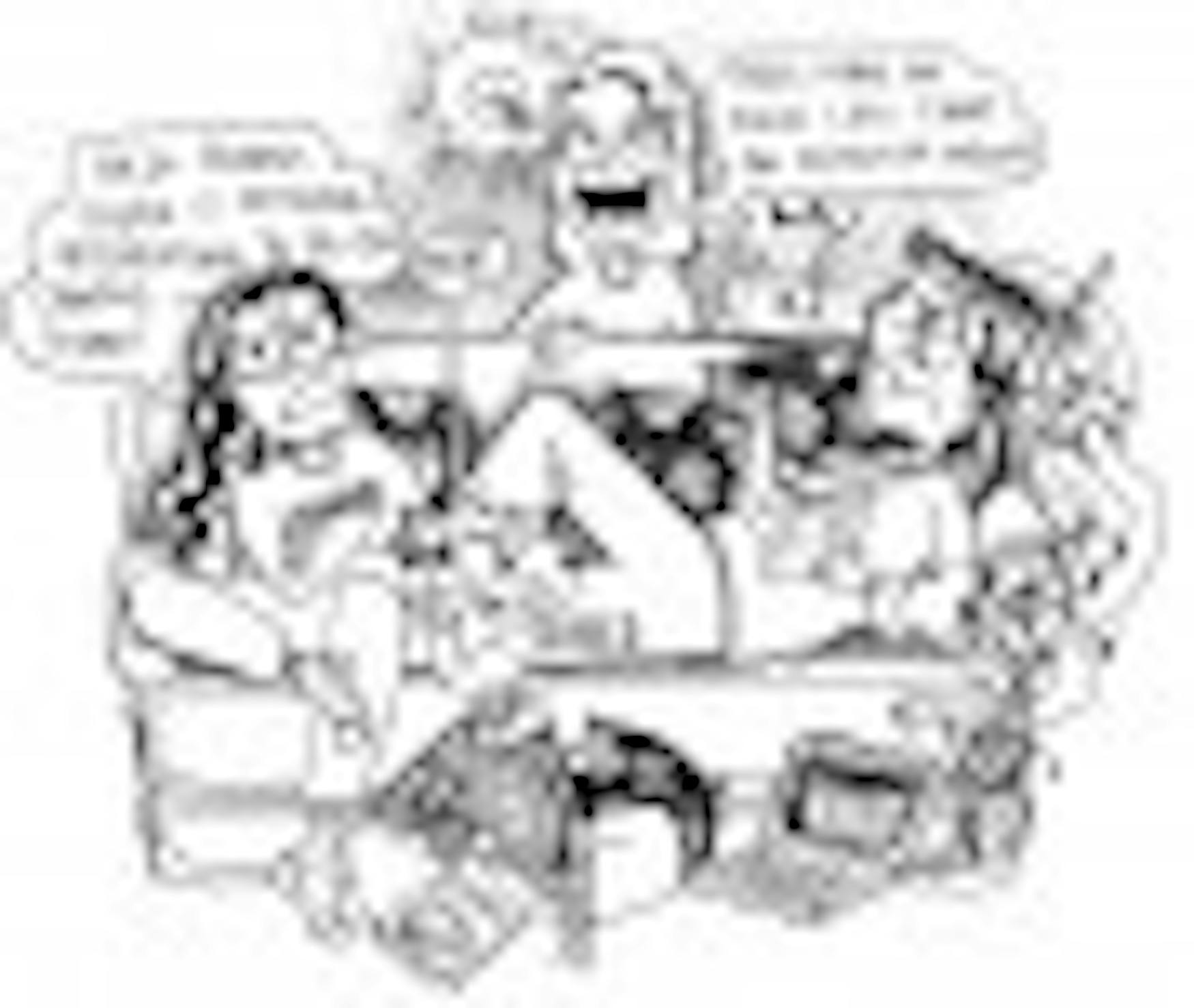Be more cautious when engaging in "activism
During some recent research into some of the more tender details of the latest health care reform, I came across some interesting news stories from March 2008. One tale in particular held my fascination. In short, an actor working with a conservative activist group called the Idaho chapter of Planned Parenthood and offered to donate money only for the abortion of black babies, explaining that "the less black kids out there, the better." The Planned Parenthood employee who took the call, Autumn Kersey, replied, "Understandable, understandable," to the man's statement about his views on black children and continued to take down all of his information cheerfully. Unfortunately for Kersey, the call was recorded, and its contents were quickly splashed all over the news media by conservative groups as proof of Planned Parenthood's covert racism.The situation interested me in terms of activist techniques because it was so polarizing, so pressing and almost entirely synthetic. What I mean by synthetic is that Planned Parenthood was not trolling through black neighborhoods offering free abortions toward some eugenic goal. There was no evidence of them doing anything even slightly racist. The problem exploded once activists created an issue due to pre-existing hostility, which, I find, is a most troublesome technique.
Consider the nature of activism. When I imagine classical activism, I imagine passionate individuals responding to problems extant in the world. The civil rights, women's rights, gay rights and environmental protection movements all have impressive successes and share a common basic structure-they are each groups formed around pressing social problems with real-world symptoms to try to bring about change. Be it Jim Crow laws, pay gaps, marriage inequality or pollution, each movement can cite a serious, concrete problem worth defeating. Furthermore, the individuals who undertake making those changes are the ones to be admired.
However, activism is attractive because it looks fun, glamorous and exciting. With endless documentaries, movies, posters and T-shirts flashing iconic images of protest, it's no wonder that we benefit from our school's reputation as a social justice institution. I maintain little doubt that many of the students who come here do so with the express intention of becoming involved in activist causes usually to all of our benefit. Organizations like Students for Environmental Action, Triskelion, Spectrum and many more are cutting-edge, successful and a credit to all of us here.
Yet the concept of adopting the persona of an "activist" merely to participate in activist activities is troubling to me. The intention of protesting without any real, pressing problem in mind seems disturbingly confrontational and, worse, not terribly uncommon. One term that has arisen to describe this mindset is "lifestyle activism," and its ethos is predicated upon the idea that activism in itself, regardless of goal or method, is a positive thing. It is this sort of thinking that gives rise to the style of activism present in the Planned Parenthood case explained above.
The idea is that there are simply "bad things" out there worthy of a response and that one should certainly "respond"-even if that means creating something to which one can "respond." One campus example might be the ongoing grumbling about Marty Peretz's '59 remarks even after his apology was submitted. Similarly, students try on occasion to join faculty listservs that are understood to be restricted from student use. Why? So they can whine about a lack of faculty transparency upon their rejection from the listservs, of course.
Therefore, rather than "lifestyle activism," I imagine this sort of approach more like "fight-picking activism," which prefers confrontation for the sake of confrontation over no activist activity at all. It's easy to imagine how that sort of behavior arises among those who would just like to be considered activists, but I worry that it reflects poorly on the efforts of others who are engaged in activism for particular goal-especially controversial topics like gay marriage and environmental action. Removed onlookers could understandably become exasperated with constant rabble-rousing and come to conflate that behavior with the difficult struggles of the more "classical" activists who often have no choice but to engage in a little confrontation.
Activism is a necessary part of the American social landscape, and it has certainly brought us step-by-step to all of our more progressive conclusions. Nevertheless, I feel it should be seen only as a vehicle or a means. Viewing activism as an ends in itself leads to a hastiness to conflict that damages the ongoing work of activists who cannot so easily choose a path other than confrontation. Those who consider themselves activists for the title should consider the difficult work of their fellow activists before they approach situations with pitchforks and torches. I would suggest that those intending on activism wait for real evidence of actual wrongdoing-or at least for an area legitimately needing improvement-before confronting anyone and that they use more subtle avenues of protest before they start writing letters, phoning news stations, staging protests and occupying buildings.
My solution for disliking Planned Parenthood? Don't use its services. My response to Peretz's remarks? Loving our Muslim brothers and sisters as much as we always have. Activism, I believe, doesn't need a fight to be successful nor a media drama to be profound. It is the rarity of those events that make them major, and, with constant confrontation, we risk robbing them of their clout.




Please note All comments are eligible for publication in The Justice.